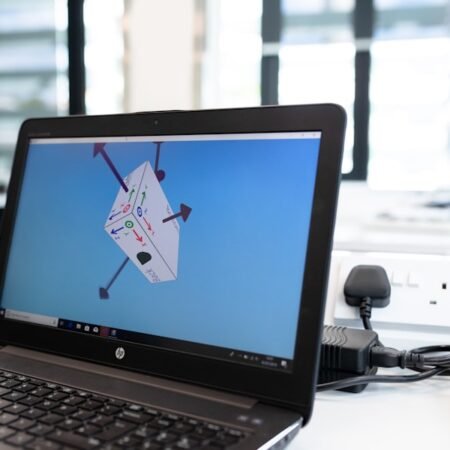Penetration testing, also referred to as ethical hacking, involves simulating a cyber attack on a computer system, network, or web application to identify potential security vulnerabilities that could be exploited by malicious actors. The primary objective of penetration testing is to detect and address these vulnerabilities before they can be discovered and exploited by unauthorized individuals. This proactive security approach enables organizations to reinforce their defenses and safeguard sensitive data from unauthorized access.
To develop proficiency in penetration testing, a comprehensive understanding of networking, operating systems, and programming languages is essential. Furthermore, knowledge of common security vulnerabilities and attack techniques is crucial for success in this field. Penetration testers must also be well-versed in the legal and ethical implications of their work, as they are often required to operate within strict guidelines to ensure that their activities are lawful and ethical.
Key Takeaways
- Penetration testing is a crucial aspect of cybersecurity and involves simulating cyber attacks to identify and fix vulnerabilities in a system.
- Kali Linux is a popular operating system for penetration testing, offering a wide range of tools and techniques for successful testing.
- Understanding the basics of penetration testing is essential for beginners, including the different types of tests and the legal and ethical considerations.
- Getting started with Kali Linux for penetration testing involves setting up the operating system, familiarizing oneself with the tools, and practicing in a safe environment.
- Advanced tips and tricks for maximizing penetration testing with Kali Linux include mastering specific tools, staying updated on the latest trends, and overcoming common challenges.
Getting Started with Kali Linux for Penetration Testing
Key Features and Tools
Kali Linux comes pre-installed with numerous penetration testing tools, making it a convenient and powerful platform for conducting security assessments.
Getting Started with Kali Linux
To get started with Kali Linux, users can download the latest version from the official website and install it on a virtual machine or a dedicated computer.
Exploring Kali Linux Tools and Interface
Once Kali Linux is up and running, users can explore its extensive collection of tools for information gathering, vulnerability analysis, wireless attacks, and more. Familiarizing oneself with the Kali Linux interface and learning how to use its tools effectively is essential for conducting successful penetration tests.
Essential Tools and Techniques for Successful Penetration Testing
Kali Linux offers a wide range of tools and techniques for conducting successful penetration tests. Some essential tools include Nmap for network discovery and port scanning, Metasploit for exploiting vulnerabilities, Wireshark for packet analysis, and Aircrack-ng for wireless security testing. These tools, along with many others available in Kali Linux, provide penetration testers with the capabilities they need to identify and exploit security weaknesses in target systems.
In addition to using specialized tools, penetration testers must also be proficient in various techniques for conducting successful tests. These techniques may include social engineering, phishing attacks, password cracking, and privilege escalation. By combining the right tools with effective techniques, penetration testers can maximize their chances of uncovering critical vulnerabilities and helping organizations improve their security posture.
Advanced Tips and Tricks for Maximizing Penetration Testing with Kali Linux
As penetration testers gain experience with Kali Linux, they can explore advanced tips and tricks to enhance their effectiveness. One such tip is to customize Kali Linux by adding or removing tools based on specific testing requirements. This allows testers to create a tailored environment that meets their unique needs and preferences.
Another advanced technique is to leverage scripting and automation to streamline repetitive tasks during penetration testing. By writing scripts or using existing automation tools, testers can save time and effort while maintaining accuracy and consistency in their work. Additionally, staying updated on the latest security trends and vulnerabilities is crucial for staying ahead in the field of penetration testing.
Common Challenges and How to Overcome Them in Penetration Testing
Penetration testing can present various challenges that testers must overcome to achieve success. One common challenge is the need to balance thoroughness with efficiency when conducting tests. Testers must prioritize their efforts based on the most critical assets and potential attack vectors while avoiding unnecessary delays or distractions.
Another challenge is the need to communicate effectively with stakeholders about the findings and implications of penetration tests. Testers must be able to convey technical information in a clear and understandable manner to help organizations make informed decisions about their security posture. Overcoming these challenges requires a combination of technical expertise, communication skills, and strategic thinking.
Best Practices for Conducting Ethical and Effective Penetration Testing
Legal and Regulatory Compliance
Testers must always obtain proper authorization before conducting tests and comply with relevant laws and regulations governing cybersecurity activities.
Maintaining Integrity and Trust
Maintaining integrity is vital by respecting confidentiality and privacy, which is essential for building trust with clients and stakeholders.
Effective Communication and Documentation
Effective communication and documentation are critical best practices for penetration testing. Testers should clearly define the scope of their tests, document their methodologies and findings, and provide actionable recommendations for addressing identified vulnerabilities. By following these best practices, penetration testers can ensure that their work is conducted ethically and delivers value to the organizations they serve.
The Future of Penetration Testing and Kali Linux: Emerging Trends and Technologies
The field of penetration testing is constantly evolving as new technologies emerge and cyber threats continue to evolve. As organizations adopt cloud computing, IoT devices, and other advanced technologies, penetration testers must adapt their skills and tools to address these new attack surfaces effectively. In addition to technological advancements, the future of penetration testing may also be influenced by regulatory changes and industry standards.
As data privacy regulations become more stringent, organizations may need to prioritize compliance in their security assessments, leading to new requirements for penetration testers. Furthermore, the continued development of Kali Linux and other penetration testing platforms will play a significant role in shaping the future of ethical hacking. As new tools and features are introduced, testers will have access to more powerful capabilities for identifying and addressing security vulnerabilities.
In conclusion, penetration testing with Kali Linux offers a powerful approach to identifying and addressing security vulnerabilities in computer systems, networks, and applications. By understanding the basics of penetration testing, getting started with Kali Linux, mastering essential tools and techniques, leveraging advanced tips and tricks, overcoming common challenges, following best practices, and staying informed about emerging trends and technologies, penetration testers can maximize their effectiveness in this critical field of cybersecurity. As the demand for skilled ethical hackers continues to grow, individuals who invest in developing their expertise in penetration testing with Kali Linux will be well-positioned for success in this dynamic and rewarding profession.
FAQs
What is penetration testing?
Penetration testing, also known as pen testing, is a simulated cyber attack on a computer system, network, or web application to identify security vulnerabilities that could be exploited by malicious hackers.
What is Kali Linux?
Kali Linux is a popular open-source Linux distribution designed for digital forensics and penetration testing. It comes with a wide range of tools for security testing, including penetration testing, forensics, and reverse engineering.
What are some tips for success in penetration testing with Kali Linux?
Some tips for success in penetration testing with Kali Linux include: 1. Understanding the basics of networking and security concepts 2. Familiarizing yourself with the tools and techniques used in penetration testing 3. Keeping up to date with the latest security vulnerabilities and exploits 4. Practicing in a controlled environment to avoid causing harm to real systems 5. Documenting and reporting findings accurately and responsibly
What are some common tools used in penetration testing with Kali Linux?
Some common tools used in penetration testing with Kali Linux include: 1. Nmap for network discovery and security auditing 2. Metasploit for exploiting security vulnerabilities 3. Wireshark for network protocol analysis 4. Burp Suite for web application security testing 5. Aircrack-ng for wireless network security testing
Is penetration testing legal?
Penetration testing is legal when conducted with proper authorization and consent. Unauthorized penetration testing is illegal and can result in severe legal consequences. It is important to obtain permission from the owner of the system or network before conducting any penetration testing activities.









